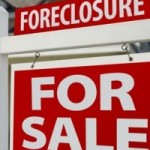 Federal Reserve Chairman, Ben Bernanke, cited a plan to pilot a program early this year which would convert government-owned foreclosure properties into rentals. Foreclosures now owned by Fannie Mae, Freddie Mac and HUD would be sold to investors in bulk. Is this new government foreclosure plan a good deal?
Federal Reserve Chairman, Ben Bernanke, cited a plan to pilot a program early this year which would convert government-owned foreclosure properties into rentals. Foreclosures now owned by Fannie Mae, Freddie Mac and HUD would be sold to investors in bulk. Is this new government foreclosure plan a good deal?
After recently acquiring $450 million in vacant foreclosed homes with a plan to rent them out, John Brady, Oaktree Capital Management's head of global real estate, said, "We believe that this is not only a unique investment opportunity with few qualified large-scale competitors, but one that also has the potential to have a broader positive effect on the housing market and the overall economy."
Interesting. Let's break down what he said.
1. "...a unique investment opportunity with few qualified large-scale competitors..."
Hmmm. Few competitors.
Does having only a few buyers make for a better market?
When we sell properties through the 5 Day Sale method, the key to success is having enough potential bidders to create a true market.
When you post an item on eBay, wouldn't you rather have 30 bidders instead of 2?
It seems more prudent for Washington to get as many potential buyers to have the opportunity to buy these properties as possible. Either by getting them listed on the MLS or by auctioning them off (as some banks have begun doing prior to assigning to a real estate agent). Why restrict the pool of potential buyers to a select few massive investment firms?
2. "...has the potential to have a broader positive effect on the housing market..."
If you are a homeowner in a quaint subdivision in Anywhere, USA reading this, let me ask you a question, "Would you like to have more rentals in your neighborhood?" How about if you live in a condo complex, "Do you want more tenants all around you?" Exactly.
What happens when more rentals flood a market? Let's take a look a recent case study.
In LaVergne, TN, there stands one of the largest subdivisions in America, called Lake Forest. Thousands of homes, neatly clustered together on treed cul-de-sacs and winding sidewalked streets. Interestingly enough, the owner of the land to which the subdivision was built, purchased some 300+ of those homes for his portfolio, to which he rented out. In addition, an enterprising real estate agent / property manager marketed and sold Lake Forest properties to an interesting group of "investors". He ran webinars to Californians with self-directed IRA money and touted the power of leverage to acquire brand new properties with a nominal down payment that cash-flowed positive in an area that economic statistics showed was stable and appreciating.
As fast as builders could throw up homes in Lake Forest, buyers snatched them up. All the while, a very high percentage were investors who were renting them out. After several years of this, things began to fall apart. NOT because of the real estate melt down (the slide started in early 2005), but because the extremely high proportion of rentals began to take it's toll on the neighborhood. Crime exploded. Foreclosures abound because West Coast "Investors" couldn't afford empty house payments. Property values began to decrease. The guy who owned the huge number of properties turned to government subsidized housing to keep his properties filled. The LaVergne Police Department had to build a new Crime Suppression Unit sub-station and situate it in the subdivision. Homeowners didn't know what to think. While the real estate boom was still in full force in 2006, they were dealing with being upside down and having no way out but short sale or foreclosure.
Now, fast forward to 2012, properties that sold for $170,000 as new builds are selling for $70,000. And keep in mind, other parts of LaVergne didn't see this slide. LaVergne has a Nissan plant and other employers that keep employment strong. The rest of LaVergne didn't experience what happened in Lake Forest.
What's the lesson?
A disproportionately large number of single family home rentals has a very negative impact on the housing market. Apartment vacancies are at all time lows these days. Excellent! Apartments make for great rentals and do a wonderful job of handling a portion of the overall rental market. But forcing single family homes to become rentals that otherwise, through the free market system, may have become owner-occupied properties, can hurt our neighborhoods.
If the government wants to meddle in the free market economy, why not open these properties up for people who went through a short sale or a foreclosure to become homeowners again?
Or just let the free market do its thing and some foreclosures will be renovated and resold to owner-occupieds and others will be purchased as rentals or offered on a Rent to Own and let the chips fall where they may.
What do you think?

Speak Your Mind